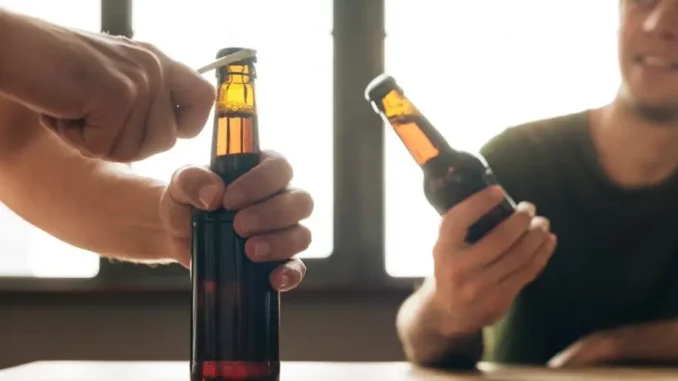
Alcohol gets in the way of your training success. But how much time should pass between exercising and consuming alcoholic beverages so that your training is not in vain?
One might think that athletes who pay particular attention to their body and health rarely consume alcohol or avoid it completely. Looking at today’s trends, you might be less surprised that athletes are often associated with alcohol: Long-distance runners often reward themselves with a cool drink, beer and wine yoga are becoming increasingly popular and people like to toast together in many small sports studios. But are exercise and alcohol actually compatible?
This is how the body reacts to alcohol
In order to understand how alcohol affects our bodies after exercise, it is important to know how we react to it. Our liver plays the biggest role here, as it breaks down and metabolizes the toxins in the body. But once alcohol is in our bloodstream, it affects every other organ. When we consume alcohol, the body uses energy for detoxification instead of for processes such as muscle recovery, healing and growth. In addition, alcohol thins the blood, kills brain cells and has a negative effect on the cardiovascular system. It also affects sleep, which is important for regeneration.
After exercise: One hour break before the drink
Although there is no precise research on this question, it can be said that you should avoid drinking alcohol in the first hour after a sports session. During this time lies the critical phase of regeneration , in which the body should be supplied with sufficient energy and water to replenish its stores. However, this hour is the minimum; it would be better to take an even longer break so that the body can recover.
Alcohol prevents you from building muscle
Especially if you want to build muscle mass, you should avoid alcohol after training. This affects the speed of protein synthesis – the process by which muscles grow and repair themselves. During training sessions, fine micro-tears develop in the muscles so that they can grow better and performance can be increased. Drinking alcohol after training can significantly slow down progress. Studies also show that alcohol can lower levels of human growth hormone, which helps the body build muscle.
Everything in moderation – including alcohol
A glass of champagne or a beer won’t ruin your entire workout, but larger amounts of alcohol can significantly disrupt the muscle growth and recovery process.
Do athletes have to give up alcohol completely?
Of course, that depends entirely on the goals you set. If you really want to compete in big competitions, you should avoid alcohol and thus reduce the risk of injury. If you want to do something good for your body through sport, but at the same time don’t want to give up alcohol, you can follow a few small rules to relieve the strain on your body.
It’s best to fuel your body with proteins and complex carbohydrates after training . These are required for protein synthesis and glycogen storage.